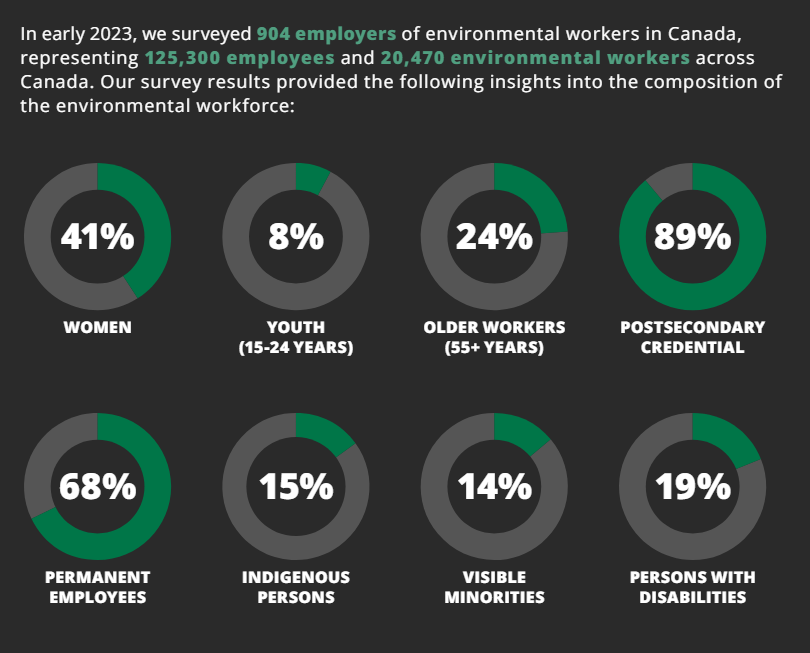ECO Canada has released a detailed report titled “A Demographic Profile of the Canadian Environmental Workforce,” offering a comprehensive analysis of the demographic characteristics and employment trends among professionals in the environmental sector across Canada.
The report aims to inform and guide efforts to address current and future labour market needs in the industry.
The latest data reveals that 7% of Canada’s workforce engaged in activities related to environmental protection, natural resource management, or sustainability in 2023. Looking ahead, the sector will need to recruit more than 480,000 new green workers over the next decade to meet growing demands.
Labour, skills shortages expected to worsen
According to the report, many employers are already experiencing labour and skill shortages, which they expect to worsen. Addressing these shortages will require employers to tap into diverse talent pools and promote workplace diversity.
Randy Boissonnault, Minister of Employment, Workforce Development and Official Languages, emphasized the importance of such research in tackling climate change and achieving economic goals.
“The consequences of climate change are unprecedented for our population, the environment, and our economy. By supporting research and reports like the one from ECO Canada, we are working together to face the challenges of today and tomorrow. These findings in the environmental sector will help us to address labour shortages and to achieve Canada’s goal of a net zero economy,” Boissonnault said.
The report is based on an extensive survey conducted among employers and green workers in Canada in 2023, along with a thorough data analysis.

Key findings
Key findings include:
- Gender Diversity: Women represent 46% of the environmental workforce, though there is still a need for more gender parity, especially in leadership roles.
- Age Distribution: The workforce shows a balanced age distribution, with a significant portion of professionals aged between 25 and 44.
- Educational Attainment: Most environmental professionals hold post-secondary education, with 75% having a university degree and 17% possessing a college diploma or certificate.
- Employment Characteristics: The report also examines job satisfaction, salary ranges, and employment status within the sector.
“The demographic profile of Canada’s environmental workforce provides valuable insights into the current state of the industry and the opportunities for future growth and development,” said Geni Peters, Director of Research at ECO Canada. “It underscores the importance of diversity and inclusion in driving innovation and sustainability in the environmental sector.”
The full report is available for download on the ECO Canada website: A Demographic Profile of the Canadian Environmental Workforce – March 2024.
This project received funding from the Government of Canada’s Sectoral Workforce Solutions Program. ECO Canada has been a leading advocate and supporter of the Canadian environmental industry, promoting responsible and sustainable economic growth through job creation, training, and labour market research for over 30 years.





